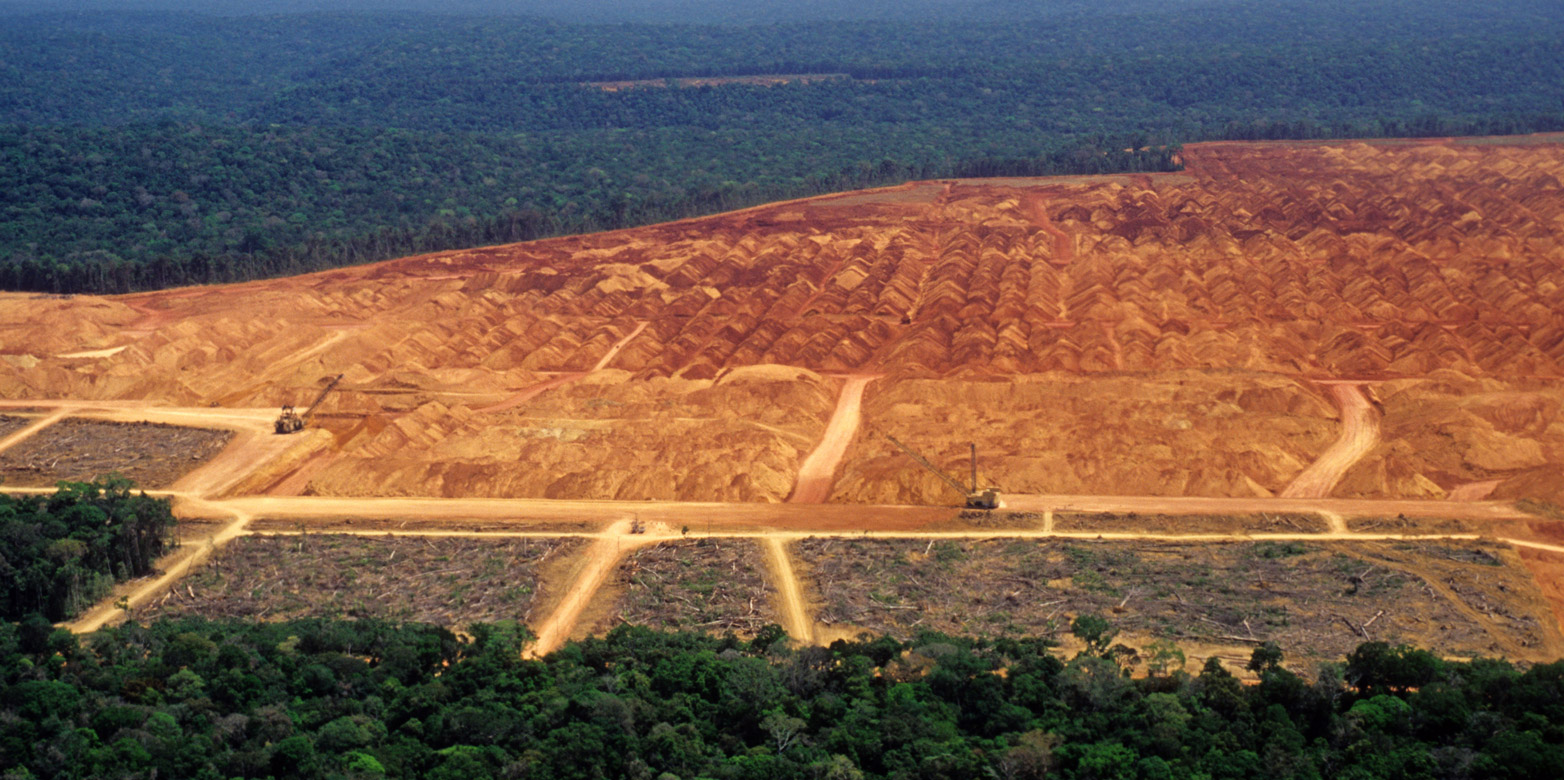Politics, trade, and forest conservation
The president of Brazil, Jair Bolsonaro, ushers in a new era of deforestation in the sad saga of Brazil’s land conflicts. As consumers we should not be complicit in his agenda, says Jaboury Ghazoul.

In his speech at the World Economic Forum (22 January 2019) Jair Bolsonaro stated “It is now our mission to make progress in harmonising environmental preservation and biodiversity, with much-needed economic development. One should not, of course, emphasize one more than the other.”
This might seem reasonable were it not for Bolsonaro’s notorious anti-environmentalism. He has pledged to open up the Amazon forest for business and to curtail environmental protection, as well as the rights of indigenous communities whom he has compared to animals in zoos1. During Brazil’s election period in 2018, deforestation spiked by 50% on the previous year in anticipation of Bolsonaro’s victory.
One of the first decisions made on his first day in office was to transfer responsibility for assigning indigenous lands from FUNAI, the agency tasked with safeguarding the rights and welfare of indigenous communities, to the Ministry of Agriculture that prioritises the interests of agricultural industries that crave greater access to protected forested and indigenous lands. In the month since, marauders have illegally invaded indigenous territories to take control of forests for development.

New era of normalised violence
As concerned consumers of Brazilian agricultural products we should be very alarmed at this turn of events. Brazil’s National Institute of Space Research (INPE) has calculated that Bolsonaro’s policies could increase annual Amazonian deforestation from 6,900 square kilometres to 25,600 square kilometres in 2020 2. This understandably raises concerns among many who argue that forest conservation is essential for human welfare and an ethical obligation to future generations, yet both these arguments can be contested on the grounds of economic opportunity and progress.
It is far more difficult to contest the basic moral premise that human rights are universal and inalienable, including the rights of indigenous communities to live unmolested in their lands. Bolsonaro is inciting open violence against indigenous communities in the Amazon. These people, and many other Amazonian marginalised communities, have historically suffered countless brutalities at the hands of miners and ranchers, with the complicity of the military and government3.
Our economic muscle
Violence was especially severe during two decades of military dictatorship from 1964 to 1985. Brazil’s 1988 constitution sought to reverse decades of discrimination by providing protections for its historically marginalized peoples, and the situation has improved (although violent land conflicts continue to this day). Bolsonaro’s policy ambitions represent a return to an era of normalised rural violence where ranchers and miners used terror and murder with near impunity to displace people from their lands.
Yet Bolsonaro is only a bit-player in this state of affairs. The future of Amazonia is shaped by the views and actions of many agents, not only Brazil’s president. Most directly, these include the Brazilian people, agribusinesses, indigenous communities, and non-government organisations, who wrestle over policies and interventions.
«As consumers we must insist on due diligence by companies and banks to eradicate deforestation from agricultural supply chains and capital investments.»Jaboury Ghazoul
Indirectly, substantial power lies with the global populace. By far the largest share of Amazonian deforestation is driven by agribusinesses owned by European and American companies, while Europe’s economy in particular is deeply intertwined with Brazil’s4.
In need for regulation
As consumers of Brazilian agricultural products, we must insist on the application of due diligence by European companies and banks to eradicate deforestation and human rights abuses from agricultural supply chains and capital investments.
Some countries have already taken steps in this direction. France’s Devoir de Vigilance law requires French companies to evaluate the risk of environmental and social damage within their supply chains, including that caused by subcontractors and suppliers globally5. Switzerland is currently debating an initiative that would oblige Swiss companies to implement human rights and environmental due diligence in their business activities abroad6.
The European Commission must also enact legislation to ensure that no product imported into the EU leads to deforestation or human rights violations7. The OECD already provides a framework to ensure that agricultural supply chains respect human rights and environmental standards8. Such regulations could be given teeth by including laws and mechanisms for prosecution of EU nationals and companies that benefit from illegal land conversion.
Exerting collective power
We consumers in Europe can exert collective power by pressurising agribusinesses, banks, and governments to implement strong due diligence regulations. The role of European trade in driving environmental degradation in Brazil has been emphasised by a letter, published in Science on 25 April 2019, signed by 600 academics (myself included) and Brazilian indigenous groups9.
In a globalised world, we can effect change by acting locally, by forcing our governments and companies to eliminate oppression and deforestation from supply chains that end in Europe. Bolsonaro’s commitment to development by weakening environmental and human rights standards depends on our willingness to be complicit in his agenda.
References
1 Jair Bolsonaro: “In 2019 we’re going to rip up Raposa Serra do Sol [an Indigenous Territory in Roraima, northern Brazil]. We’re going to give all the ranchers guns.” external pageStatement made in the Brazilian congress on 21 January 2016call_made
2 INPE, October 2018: external pageBlogcall_made
3 Ghazoul, J. and Kleinschroth, F. (2018) external pageA global perspective is needed to protect environmental defenderscall_made. Nature Ecology and Evolution, 2, 1340–1342.
4 Die EU ist der grösste ausländische Investor in Brasilien und der zweitgrösste Handelspartner, auf den über 18% des brasilianischen Handels entfallen. Brasilien ist der grösste Exporteur von Agrarprodukten in die EU. external pageEuropean Commissioncall_made, (4 July 2018).
5 Government of France (28 March 2017): external pageLinkcall_made
6 Swiss Coalition for Corporate Justice (2018): external pageLinkcall_made
7 FERN 2018: Can an EU Human Rights Due Diligence Regulation help us tackle deforestation and respect human rights? Discussion Paper. December 2018.
8 OECD 2018: external pageDue Diligence Guidancecall_made for Responsible Agricultural Supply Chains
9 More than 600 scientists from every country in the EU and 300 Brazilian Indigenous groups have come together for the first time to raise alarm about the need to make environmental impacts and human rights conflicts a priority in the ongoing trade negotiations with Brazil. Their letter, published in external pageSciencecall_made on 25th April 2019, and further information can be found on this external pagewebsitecall_made.
